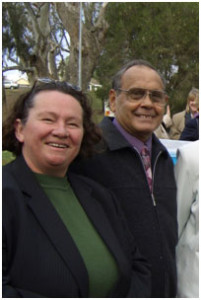Services
Corporate Governance and Leadership: Delivering Your Indigenous Strategy Both Ways
Dr Ma Rhea has designed and delivered many programs tailored to industry leaders and senior managers that are practical in application. In addition, Zane also encourages and facilitates an open environment where issues can be explored, discussed and resolved as they relate to specific contexts.
Delivering Your Aboriginal Strategy
 Small primary care and community health services are at the frontline of accountable service delivery and their credibility and funding are increasingly tied to their effectiveness in meeting government targets concerning Indigenous Australians. In order to do this they must undertake sometimes unwelcome organisational development. Zane’s approach is to develop a strategic change planning program designed to strengthen leadership and quality assurance. For example, in a recent consultancy, Zane worked in consultation senior managers from the partnering community-based health services organisations and local community representatives to deliver this staged strategic change planning program to 25 Executive Officers, Board Members, and managers of OEHCSA partners. Participants from each organisation then worked to develop organisation-specific strategic change plans that were designed to deliver measurable impacts by the end of the program.
Small primary care and community health services are at the frontline of accountable service delivery and their credibility and funding are increasingly tied to their effectiveness in meeting government targets concerning Indigenous Australians. In order to do this they must undertake sometimes unwelcome organisational development. Zane’s approach is to develop a strategic change planning program designed to strengthen leadership and quality assurance. For example, in a recent consultancy, Zane worked in consultation senior managers from the partnering community-based health services organisations and local community representatives to deliver this staged strategic change planning program to 25 Executive Officers, Board Members, and managers of OEHCSA partners. Participants from each organisation then worked to develop organisation-specific strategic change plans that were designed to deliver measurable impacts by the end of the program.
Indigenous corporate leadership development
In 1992, a historic legal decision recognised that a period of continuous occupancy gave Indigenous groups a legitimate claim to land ownership [Mabo vs. Queensland (No.2)]. This decision, and the Native Title legislation that followed, profoundly changed the direction and scope of relations between the Australian Federal and State legal jurisdictions, global industries (particularly primary resource industries such as mining, logging and fishing), and Indigenous peoples in remote Australia. It is now recognised in law and practice in Australia that Indigenous people who have established claim over their lands have the right to exclusive control of the development of its resources on behalf of all Australian people. It is the existence of these Indigenous rights that highlights the need for economically sustainable remote communities with access to the same levels of health, education, housing and welfare provision as are available to Australians living in urban and rural locations. There continues to be little or no viable economic base in these communities except that deriving from the temporary presence of large-scale industries such as mining companies. The role of education in preparing and enabling Indigenous Peoples to maximise economic benefit available through the presence of such activities on their lands is a key element in the Participatory Action Research in which Zane specializes.
A specialized program running over two years began with analysis of available data and in-depth  discussions with Yolŋu Traditional Owners, local industries, businesses and service organisations. Out of these consultations Zane was able to develop a tailored, high-quality executive leadership, governance and management development course. Zane has based her work on the knowledge that there are now many best practice examples of successful economic arrangements being made between big business and Indigenous communities and Indigenous service organisations (see for example UN Global Compact’s (2007) Enhancing Partnership Value and Agreements, Treaties, and Negotiated Settlements. These partnerships recognise the potential and actual economic strengths of indigenous people.
discussions with Yolŋu Traditional Owners, local industries, businesses and service organisations. Out of these consultations Zane was able to develop a tailored, high-quality executive leadership, governance and management development course. Zane has based her work on the knowledge that there are now many best practice examples of successful economic arrangements being made between big business and Indigenous communities and Indigenous service organisations (see for example UN Global Compact’s (2007) Enhancing Partnership Value and Agreements, Treaties, and Negotiated Settlements. These partnerships recognise the potential and actual economic strengths of indigenous people.
Corporate Examples
Telstra Australia
Zane was commissioned by Telstra to undertake a major review of diversity leadership and management training programs for senior and middle level managers. This review included the evaluation of existing programs through appropriately designed formal instruments, and the design and facilitation of new programs such as:
- Cross cultural leadership and communications
- Interpersonal communication for managers
- Managing diverse work teams
- Understanding and working with organisational change
Department of Immigration, Multicultural and Indigenous Affairs
Designed and facilitated an objective evaluation of the strategies and methodologies used by private training providers to assess both their effectiveness and broader applicability as part of the Department’s involvement with the Productive Partnerships in Diversity program.